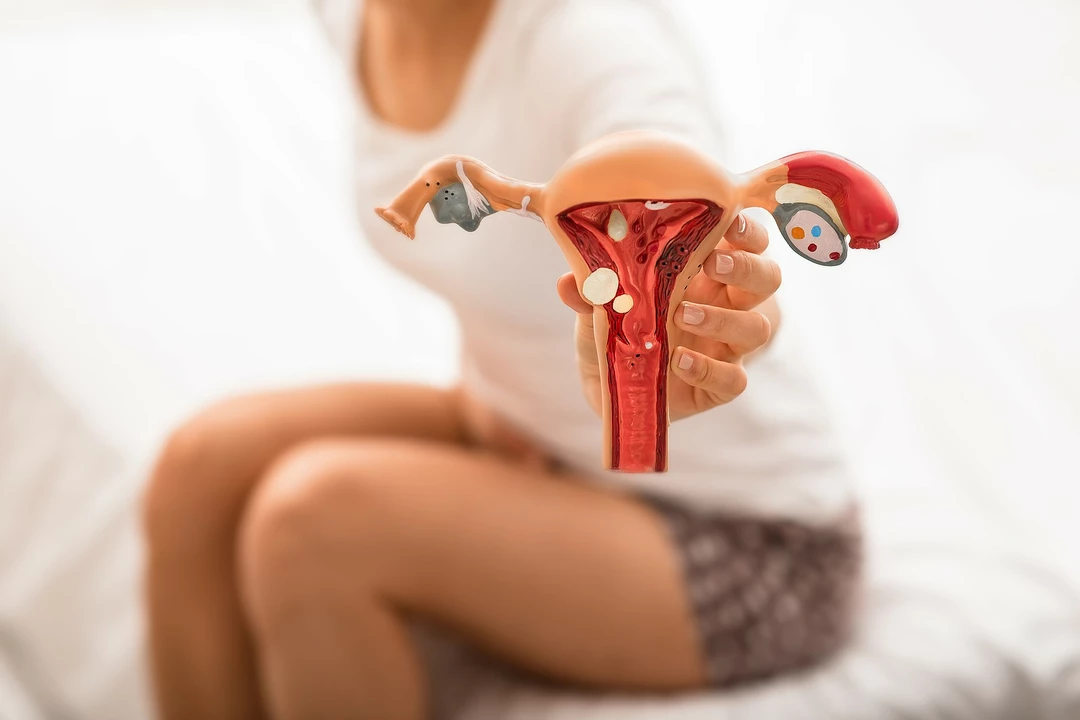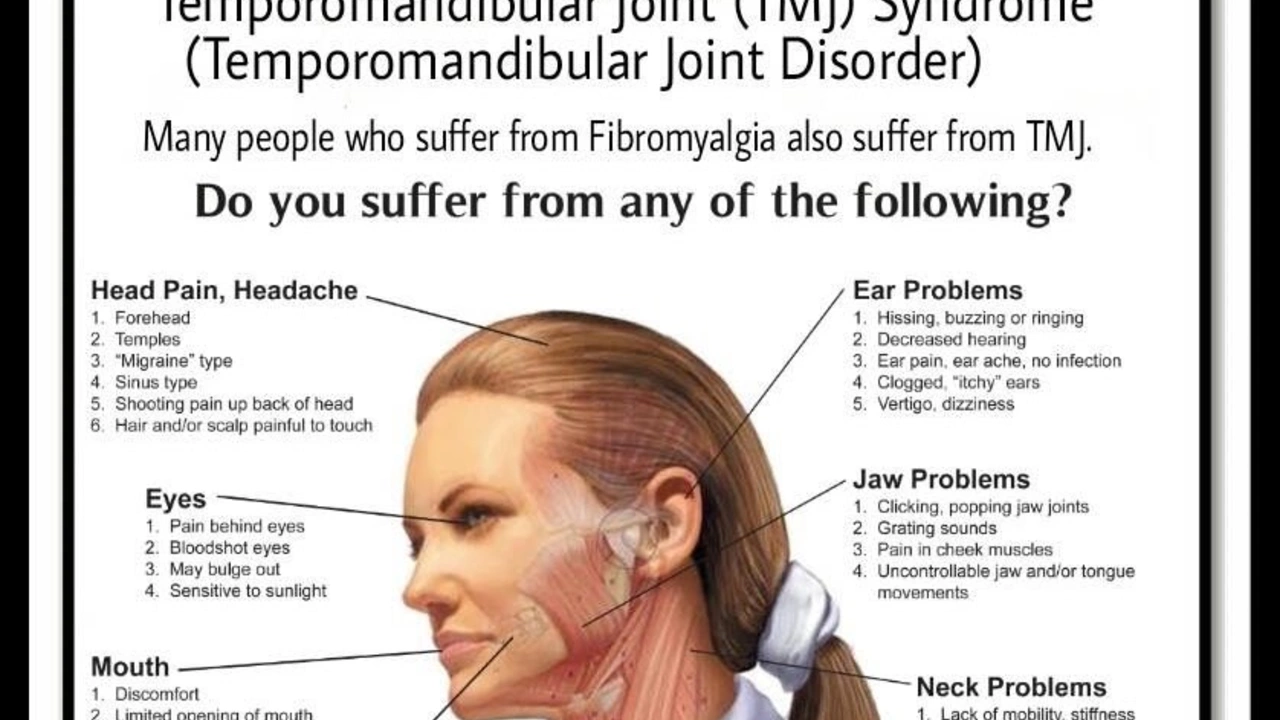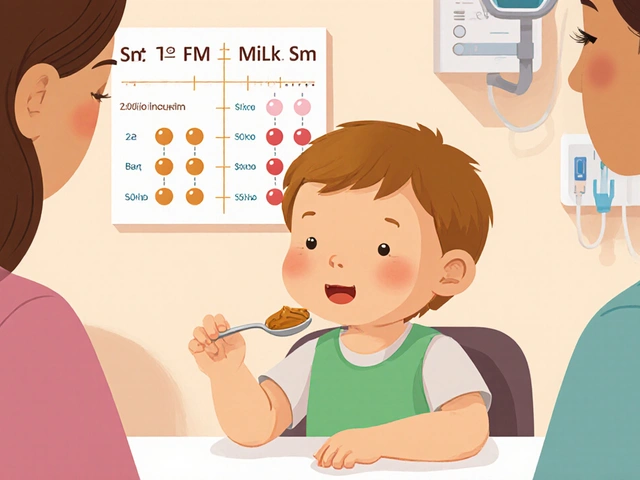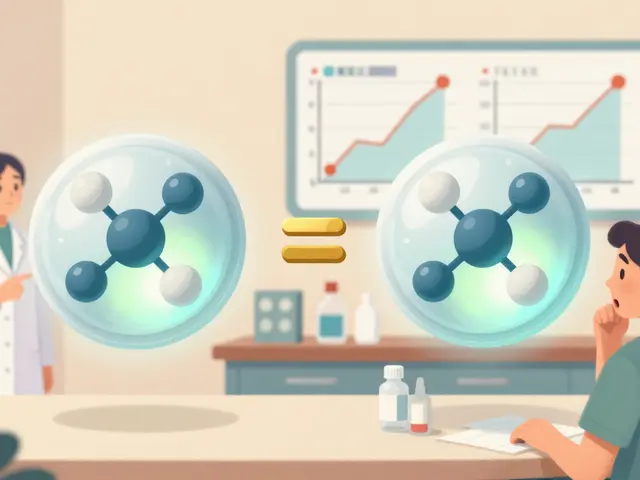Understanding Endometriosis and its Impact on Fertility
As someone who has experienced the effects of endometriosis firsthand, I can attest to the emotional and physical toll this condition takes on a woman's body. One of the most challenging aspects of endometriosis is its potential impact on fertility. In this article, we'll explore what endometriosis is, how it affects fertility, and what you can do to increase your chances of conceiving with this condition.
What is Endometriosis?
Endometriosis is a medical condition where the tissue that normally lines the inside of the uterus, known as the endometrium, grows outside the uterus. This endometrial tissue can attach itself to other organs and tissues, such as the ovaries, fallopian tubes, and the lining of the pelvic cavity. When this tissue grows and breaks down during the menstrual cycle, it can cause inflammation, pain, and the formation of scar tissue. Endometriosis affects roughly 1 in 10 women of reproductive age, making it a fairly common issue.
How Endometriosis Affects Fertility
While not all women with endometriosis will experience fertility problems, it is estimated that up to 50% of women with the condition may have difficulty conceiving. There are several ways in which endometriosis can impact fertility:
1. Blocked or Damaged Fallopian Tubes
When endometrial tissue grows on or around the fallopian tubes, it can cause inflammation and scarring, which can block or damage the tubes. This makes it difficult for the egg and sperm to meet and for a fertilized egg to travel to the uterus.
2. Impaired Ovarian Function
Endometriosis can cause cysts to form on the ovaries (known as endometriomas), which can interfere with normal ovarian function, including the release of eggs during ovulation.
3. Altered Pelvic Environment
The inflammation and scarring caused by endometriosis can create a hostile environment for sperm, making it more difficult for them to reach the egg and fertilize it.
Treatment Options for Endometriosis-Related Infertility
For women with endometriosis who are struggling to conceive, there are several treatment options available. The most appropriate treatment will depend on the severity of the endometriosis, the woman's age, and her overall health. Some common treatment options include:
1. Hormonal Therapy
Hormonal medications, such as birth control pills or progestin therapy, can help to suppress the growth of endometrial tissue and reduce inflammation, which may improve fertility in some cases. However, these medications must be stopped when trying to conceive.
2. Laparoscopic Surgery
Laparoscopic surgery can be used to remove or destroy endometrial tissue, which may help to improve fertility by unblocking the fallopian tubes and reducing inflammation in the pelvic cavity. This minimally invasive procedure is often recommended as a first-line treatment for women with endometriosis who are trying to conceive.
3. Assisted Reproductive Technology (ART)
For women with endometriosis who are unable to conceive after trying other treatments, assisted reproductive technology (ART) may be an option. In vitro fertilization (IVF) is the most common form of ART and involves combining eggs and sperm in a laboratory to create embryos, which are then transferred to the uterus.
Lifestyle Changes to Improve Fertility
In addition to medical treatments, there are several lifestyle changes that can help to improve fertility in women with endometriosis. Some suggestions include:
1. Maintaining a Healthy Weight
Being overweight or underweight can negatively impact fertility, so it's important to maintain a healthy weight through a balanced diet and regular exercise.
2. Reducing Stress
Chronic stress can have a negative impact on fertility, so practicing stress-reduction techniques, such as yoga or meditation, can be beneficial.
3. Avoiding Environmental Toxins
Exposure to certain environmental toxins, such as pesticides and chemicals found in everyday products, can negatively affect fertility. Aim to use natural or organic products whenever possible, and avoid exposure to known toxins.
Conclusion
Endometriosis is a challenging condition that can have a significant impact on a woman's fertility. However, with the right treatment plan and lifestyle changes, it is possible to conceive and have a healthy pregnancy. If you suspect that you have endometriosis or are struggling to get pregnant, it's important to speak with a healthcare professional who can help guide you through the process and provide the support you need.














10 Comments
i mean like... i had endo for 7 years and no one believed me until i passed out at work and the ER doc said 'wow thats a lot of scar tissue' bruh why does it take a near-death experience to get treated? they just tell you to take ibuprofen and call in sick. its 2024 not 1994.
also my boyfriend left me because i 'wasn't fun anymore' after the third surgery. like bro i lost my uterus and you left over mood swings? i dont even know who to be mad at anymore.
The medical establishment has systematically ignored endometriosis because it predominantly affects women and is inconvenient to treat. The 50% infertility statistic is misleading - it's not the disease itself, it's the delayed diagnosis. Average time to diagnosis? 7-10 years. That’s not negligence, that’s institutionalized misogyny wrapped in white coats and insurance denials.
And don’t get me started on how IVF is marketed as a 'solution' while the root cause is left unaddressed. Big Pharma loves repeat customers.
Hey, if you're reading this and you're struggling - you're not alone. I know how heavy this feels. I’ve been through laparoscopic surgery, hormone treatments that made me cry for no reason, and the soul-crushing weight of wondering if I’ll ever hold my own child.
But here’s what helped me: finding a specialist who actually listens. Not just any OB-GYN - someone who’s done 100+ endo excisions. And yes, it takes time and money and patience. But you deserve care that doesn’t make you feel like a burden.
Also, yoga and turmeric tea aren’t magic, but they helped me breathe through the pain. Small wins count.
In India, we don’t have this luxury of talking about endometriosis openly. Women are told to endure pain because 'it's normal'. My cousin was married at 22, tried for 3 years, then divorced because she 'couldn't produce'. No one ever asked if her uterus was under attack from rogue tissue. No one ever ran an ultrasound.
Western medicine has the tools, but it's still treating symptoms like a broken faucet while ignoring the broken pipe. And now you people want to fix it with IVF? We need systemic change - not just fertility clinics selling hope for $20,000 a round.
Oh wow another 'endometriosis is a tragedy' post. Congrats, you got your uterus removed and now you're a martyr. Newsflash: half the women in this subreddit have 'chronic pain' and 90% of them are just bad at managing stress.
Also, IVF? That's just a fancy way to pay $30k to get your eggs fried in a petri dish. You think that's better than just adopting? No? Then why are you crying about it?
I read every word of this. Thank you for writing it. I was diagnosed at 28 after 5 years of being told I was 'just anxious'. I had a laparoscopy that removed 80% of my lesions - and yes, I got pregnant naturally 8 months later.
It’s not guaranteed. But it’s possible. And if you’re reading this and feeling hopeless - I was too. But I’m holding my daughter right now. You’re not broken. Your body is just fighting a war no one else sees.
I used to think pain was part of being a woman until I started bleeding out of my butt during my period. Turns out endo doesn't care about your gender norms. It just wants to ruin your life. And yeah, I'm mad. I'm mad at every doctor who told me to 'take a warm bath'. I'm mad at my ex who said 'maybe you just need to relax'. I'm mad at the system. But mostly? I'm mad because I wanted to be a mom and now I'm terrified I won't be able to.
But I'm still here. Still fighting. Still hoping. And if you're reading this? You're not alone. Keep going.
I’m curious - has anyone here tried the low-FODMAP diet? I’ve read a few studies suggesting it reduces inflammation and bloating in endo patients. It didn’t cure my infertility, but it cut my pain by 60%. Also, magnesium supplements and acupuncture helped a lot. Just putting it out there.
In my country, we have no access to laparoscopic surgery outside major cities. Women die from untreated endometriosis. The government funds cosmetic surgeries for men but not reproductive health for women. This isn’t a medical issue - it’s a colonial mindset that sees female bodies as disposable. You talk about IVF like it’s a miracle. We don’t even have basic painkillers.
The data presented is statistically sound but lacks contextual rigor. The 50% infertility rate is drawn from a biased sample of tertiary care patients - not population-based studies. Furthermore, the efficacy of laparoscopic excision is overstated in the literature; randomized controlled trials show minimal improvement in live birth rates compared to expectant management.
It is also worth noting that the promotion of IVF as a primary intervention ignores the ethical and economic implications of commodifying human reproduction. This article, while well-intentioned, functions more as advocacy than evidence-based medicine.